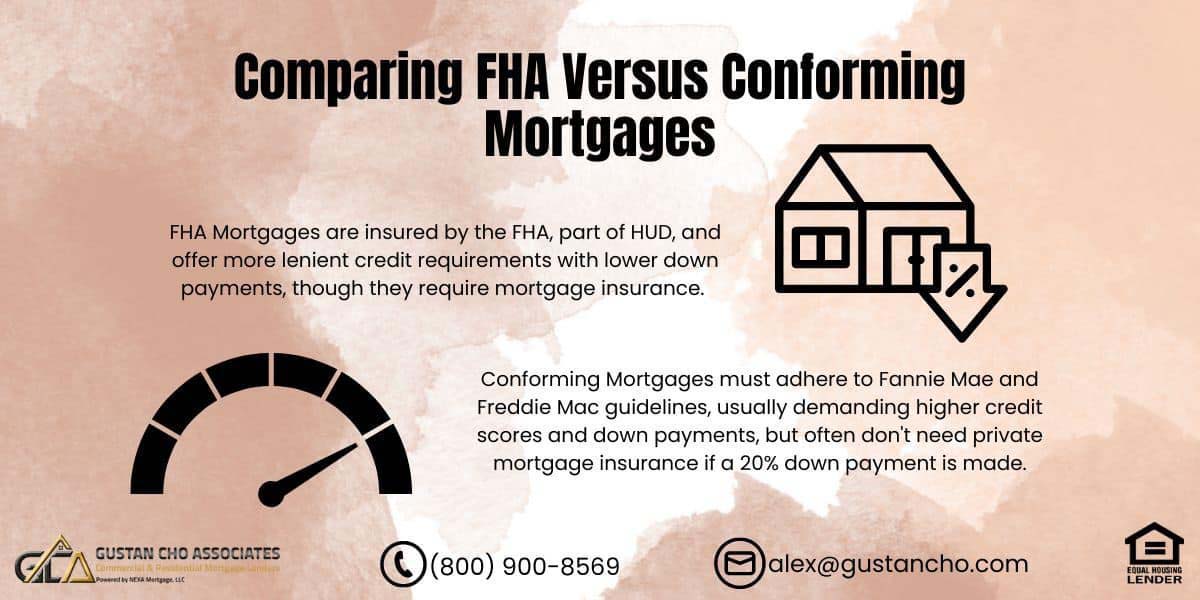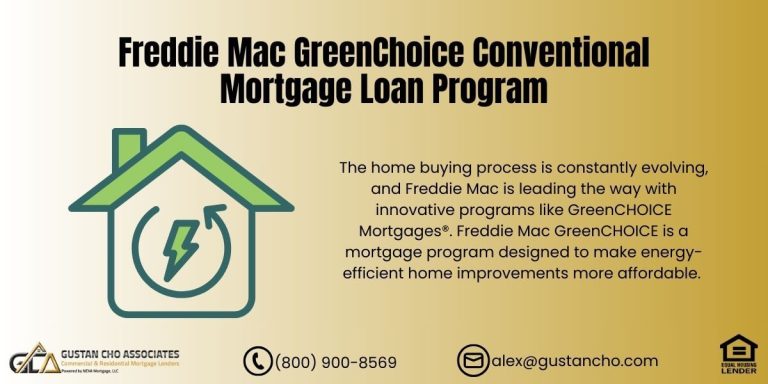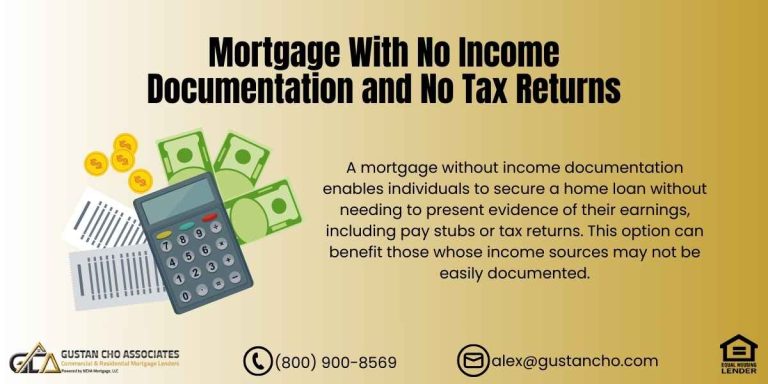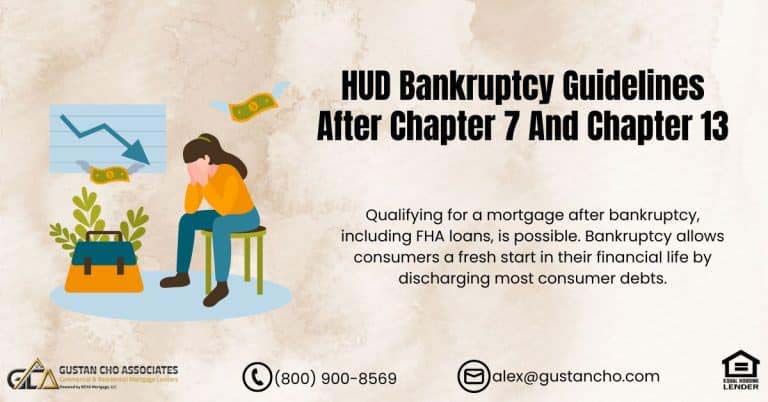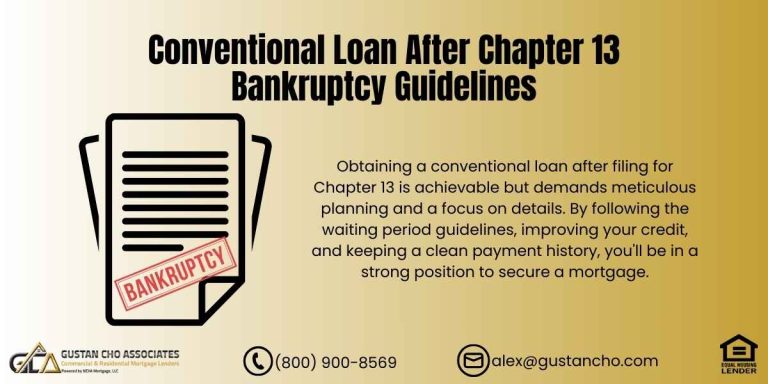This guide compares FHA versus conforming mortgages, the two most popular mortgage loan programs for homebuyers in the United States. Which program should homebuyers choose? Both have pros and cons.
Sometimes, borrowers may qualify for FHA loans instead of conforming mortgages. Conversely, some borrowers who qualify for conventional loans may not qualify for FHA loans.
HUD, the parent organization of FHA, insures and partially guarantees FHA loans. It is not a lender and does not originate, process, underwrite, fund, or service FHA loans. HUD is a large federal agency whose role is to insure FHA loans for HUD-approved mortgage lenders. In the following paragraphs, we will compare the pros and cons of FHA versus conforming mortgages.
Who Originates and Funds FHA Loans
Private lenders are responsible for originating, processing, underwriting, funding, and servicing FHA mortgages. After the loan receives funding, it gets transferred to either Fannie Mae or Freddie Mac, also called Government-Sponsored Enterprises (GSEs). The U.S. Department of Housing and Urban Development (HUD) insures private lenders against losses in the event of borrower default and property foreclosure.
They provide a partial guarantee for the lender’s losses. This highlights the key difference between FHA versus conforming mortgages, as the government insures FHA loans.
Thanks to HUD, individuals with subpar credit, elevated debt-to-income (DTI) ratios, and minimal down payments can benefit from competitive interest rates through FHA loans, providing financial assistance to those in need. Traditional loans, also called conforming mortgages, lack government insurance support and must follow the criteria established by Fannie Mae and Freddie Mac. Both lenders and borrowers must adhere to these standards to qualify for conforming mortgages, emphasizing another aspect of FHA versus conforming mortgages.
Take First Step Toward Making Your Dream A Reality
Apply Now And Get recommendations From Loan Experts
Is Conforming the Same as FHA?
The key difference between FHA and conforming loans is that FHA loans are insured by HUD, allowing for more lenient credit and down payment requirements, while conforming loans must meet strict guidelines set by Fannie Mae and Freddie Mac, without any government insurance.
Conforming loans and FHA loans serve different borrower needs and have distinct guidelines. Conventional loans adhere to the criteria established by Fannie Mae and Freddie Mac, and the Federal Housing Finance Agency oversees their loan limits.
These loans typically require higher credit scores, starting around 620, and a down payment of at least 3% for first-time buyers, although 5% is more common. Private mortgage insurance (PMI) is necessary if the down payment is less than 20%.
On the other hand, FHA loans, insured by the Federal Housing Administration, are designed to help lower-income borrowers or those with lower credit scores. FHA loans are more lenient, allowing credit scores as low as 500, with a minimum down payment of 3.5% for those with scores of 580 or higher. An initial mortgage insurance premium (UFMIP) and a yearly mortgage insurance premium (MIP) are also required. Even with these variations, both loans can provide fixed or adjustable rates and are commonly utilized for buying primary homes.
Which is Better, FHA or Coventional?
Deciding whether to go with an FHA loan or a conventional loan relies on your financial position and your objectives for the future. FHA loans are more accessible for borrowers with lower credit scores, allowing qualification with a score as low as 500 and requiring a minimum down payment of 3.5% for scores of 580 or higher. They also accommodate higher debt-to-income ratios, making them suitable for those with significant existing debt.
FHA loans require an initial mortgage insurance premium (UFMIP) and a yearly mortgage insurance premium (MIP), which can increase your monthly payments and usually persist for the duration of the loan unless you refinance.
Conventional loans generally require higher credit scores, with a minimum of 620, and often a 5% down payment, though options exist for as low as 3% for first-time buyers. These loans can be more cost-effective in the long term, as private mortgage insurance (PMI) can be canceled once you reach 20% equity in your home, and better rates and terms are offered to those with stronger credit.
If you can afford a larger down payment and have a higher credit score, a conventional loan might offer advantages such as lower interest rates and the eventual elimination of mortgage insurance.
Benefits of Conforming Home Loans
Conventional loans also known as conforming loans, are required to follow the standards established by Fannie Mae or Freddie Mac. Loans that do not meet these guidelines are referred to as non-conforming. Fannie Mae and Freddie Mac are the country’s largest purchasers of mortgage-backed securities. They will not buy any mortgages that do not conform to their standards.
One significant advantage of conforming mortgages versus FHA loans is that they allow home buyers to purchase second homes and investment properties. In contrast, FHA loans are restricted to owner-occupied properties only.
The necessity for conforming to Fannie Mae or Freddie Mac guidelines ensures that these agencies can maintain liquidity in the mortgage markets by purchasing loans from private lenders that meet their criteria. This process helps lenders pay off their warehouse lines of credit and continue to originate and fund more loans. Loans that fail to meet these criteria, including jumbo mortgages and non-QM loans, fall into the category of non-conforming loans.
Understanding FHA versus conforming mortgages is vital for homebuyers to determine the best loan option for their needs.
Differences Between FHA versus Conforming Mortgages
FHA versus conforming mortgages are two different types of home loans with distinct features and requirements. In the following paragraphs, we will do a comparison between FHA versus conforming mortgages.
FHA (Federal Housing Administration) Mortgages
Insured by the FHA, which is part of the U.S. Department of Housing and Urban Development (HUD). Lower credit score requirements (minimum 500-580 depending on down payment). Down payment as low as 3.5% of the home’s purchase price. Borrowers are required to pay upfront and annual mortgage insurance premiums.
More flexible underwriting guidelines, making them more accessible to borrowers with imperfect credit or limited funds. Loan limits vary by county but are generally lower than conforming loan limits. Can be used for single-family homes, multi-unit properties, approved condos, and manufactured homes.
Conforming Mortgages
Must conform to guidelines set by government-sponsored enterprises (GSEs) Fannie Mae and Freddie Mac. Typically require higher credit scores (usually 620 or higher). Down payment of at least 3-5% for first-time homebuyers, and 20% to avoid private mortgage insurance (PMI). Stricter underwriting guidelines, focusing on credit history, income, and asset documentation. Loan limits are set annually and vary by county, with higher limits in high-cost areas. Can be used for single-family homes, multi-unit properties, approved condos, and some manufactured homes.
Take First Step Toward Making Your Dream A Reality
Apply Now And Get recommendations From Loan Experts
Key Differences of FHA versus Conforming Mortgages
FHA loans have more lenient credit and down payment requirements but require mortgage insurance. Conforming loans have stricter credit and income guidelines but may not require mortgage insurance with a 20% down payment. FHA loans have lower loan limits, while conforming loans have higher limits in high-cost areas. Conforming loans are not backed by the government, while FHA loans are insured by the FHA. The choice between an FHA or conforming mortgage depends on factors like credit profile, available down payment, desired loan amount, and long-term costs associated with mortgage insurance premiums. Both programs aim to facilitate homeownership, but with different target borrower groups and requirements.
Maximum DTI Caps on Conventional Loans
Maximum debt-to-income ratio requirements on conventional loans is 50% to get an approve/eligible per automated underwriting system approval: Conforming loans are more credit-driven than FHA loans due to no government guarantee. The higher borrowers’ credit scores, the lower the mortgage rates. No private mortgage insurance is required if the homebuyer puts at least 20% down on the home purchase.
Any loan-to-value higher than 80% LTV requires private mortgage insurance. Private mortgage insurance can be canceled when the loan to value goes below 80% LTV.
With FHA loans, the annual FHA MIP of 0.55% cannot be canceled on a 30 year FHA term loan. FHA MIP is fixed at 0.55% of the FHA loan balance. With conforming loans, private mortgage insurance can vary depending on borrowers’ credit scores and other factors. Lower credit score conforming borrowers will definitely get higher private mortgage insurance as well as much higher rates than FHA loans.
Down Payment Requirements on FHA Versus Conforming Mortgages
Many homebuyers have the misconception that they need a 20% down payment to qualify for conventional mortgages. Home Ready, Home Possible, and Home Advantage are conforming loan programs that all have low down payment requirements.
There are maximum loan limit requirements in some areas while other areas do not. Down payment requirements are lower than FHA loans.
HUD requires 3.5% down payment for homebuyers with at least a 580 credit score. Conforming loans require a 3% to 5% down payment and the minimum credit score to qualify is 620. All loan programs require down payment and closing costs with the exception of VA and USDA home loans. HUD allows up to 6% seller concessions for sellers to contribute towards buyers closing costs. Conventional loans are allowed up to 3% seller concessions for owner occupant properties and 2% for investment properties.
Benefits of FHA versus Conforming Mortgages
There are many benefits of FHA versus conforming mortgages. Conforming loans cap debt-to-income ratios up to 50% to get an approve/eligible per AUS. Front-end DTI does not matter on conventional loans. HUD, the parent of FHA, allows up to 46.9% front-end and 56.9% back-end DTI to get an AUS approval. HUD is more lenient when it comes to outstanding collections and charged-off accounts. Borrowers do not have to pay outstanding collections and charged-off accounts to qualify for FHA loans.
Waiting Period After Bankruptcy and Foreclosure Comparison on FHA versus Conforming Mortgages
One of the greatest benefits of FHA loans is that people in a Chapter 13 Bankruptcy repayment plan can qualify for a mortgage after making 12 months timely payments to Chapter 13 Bankruptcy Trustee. There is no waiting period after the Chapter 13 Bankruptcy discharged date to qualify for FHA loans. There is no waiting period to qualify for FHA Loans After Chapter 13 Bankruptcy Dismissal if borrowers were timely on their payments for the past 12 months.
FHA loans require a two-year waiting period to qualify after the Chapter 7 Bankruptcy discharged date. HUD requires a three-year waiting period to qualify for FHA Loans after foreclosure, deed in lieu, short sale.
Fannie Mae and Freddie Mac require a four-year waiting period to qualify for conventional mortgages after Chapter 7 discharge, deed-in-lieu, or a short sale. There is a seven-year waiting period after regular foreclosure to qualify for conforming mortgages. Conventional loans require a two-year waiting period to qualify after the Chapter 13 Bankruptcy discharged date. There is a four-year waiting period to qualify for conventional loans after the Chapter 13 dismissal date.
Benefits of Conventional versus FHA Mortgages With High Student Loan Balances
Large student loan balances are one of the biggest issues borrowers face when trying to qualify for home loans. Conventional and FHA loans allow Income-Based Repayment (IBR) as long as it reflects on a credit report. HUD has changed its student loan guidelines in recent months. HUD used to requires 1.0% of the student loan balance as hypothetical monthly debt on deferred student loans.
However, HUD now requires either a 0.50% hypothetical debt of the outstanding student loan balance or they will take an IBR payment if it reports on the credit bureaus. Borrowers with high student loan balances can now apply for either mortgage loan program after HUD had changed their student loan guidelines recently.
Take First Step Toward Making Your Dream A Reality
Apply Now And Get recommendations From Loan Experts
Prior Mortgages Included in Chapter 7 Bankruptcy
Homebuyers with prior mortgage included in Chapter 7 Bankruptcy can possibly qualify for conforming loans but not FHA Loans due to waiting period requirements. Conforming Loans require a four-year waiting period after Chapter 7 Bankruptcy discharged date if they have prior mortgages included in Chapter 7 Bankruptcy.
The housing event needs to be finalized but the date of foreclosure, deed in lieu, a short sale do not matter.
The waiting period start date is the date of the discharged date of Chapter 7. This applies to VA and USDA Loans but not FHA Loans. With FHA Loans, there is a three-year waiting period to qualify after the recorded date of the housing event and the discharged date of Chapter 7 does not matter on borrowers with prior mortgages included in Chapter 7 Bankruptcy.
Lenders are not in a major hurry to transfer the deed over to their names so the transfer date of the housing event is normally many years after the discharged date.
FAQs: Comparing FHA Versus Conforming Mortgages
- 1. What are FHA and Conforming Mortgages? FHA Mortgages are insured by the FHA, part of HUD, and offer more lenient credit requirements with lower down payments, though they require mortgage insurance. Conforming Mortgages must adhere to Fannie Mae and Freddie Mac guidelines, usually demanding higher credit scores and down payments, but often don’t need private mortgage insurance if a 20% down payment is made.
- 2. Who Originates and Funds FHA Loans? Private lenders originate, process, underwrite, fund, and service FHA mortgages. Once funded, these loans are often sold to Fannie Mae or Freddie Mac. HUD insures these loans, protecting lenders in case of borrower default.
- 3. What are the Key Differences Between FHA and Conforming Mortgages? FHA loans are designed for individuals with lower credit scores (500-580) and demand a minimum 3.5% down payment. In contrast, conforming loans necessitate higher credit scores (620+) and a 3-5% down payment for first-time buyers. FHA loans also require upfront and annual mortgage insurance regardless of the down payment amount. In contrast, PMI is only required for conforming loans with less than 20% down. Additionally, FHA loan limits are lower and vary by county.
- In contrast, conforming loans have higher limits, which is beneficial in high-cost areas. Finally, FHA loans are limited to owner-occupied properties. At the same time, conforming loans can also be used for secondary or investment properties.
- 4. What are the Benefits of FHA Loans? FHA loans provide various benefits, such as reduced credit score prerequisites and down payment alternatives. They also feature more adaptable underwriting standards. Furthermore, FHA loans can be utilized for various property categories, including single-family residences, multi-unit properties, and manufactured homes.
- 5. What are the Benefits of Conforming Loans? Conventional loans provide advantages such as increased loan limits in high-cost areas, qualification for second homes and investment properties, exemption from mortgage insurance with a 20% down payment, and the possibility of lower interest rates with higher credit scores. If you want to learn more, you should consult a mortgage lender for personalized guidance.
- 6. What are the Waiting Periods After Bankruptcy and Foreclosure? After a Chapter 7 bankruptcy, there is a 2-year waiting period for FHA loans and a 4-year waiting period for conforming loans. For Chapter 13 bankruptcy, FHA loans require 12 months of timely payments, while conforming loans require a 2-year waiting period. For foreclosures, deed-in-lieu, and short sales, FHA loans have a 3-year waiting period, while conforming loans have a 7-year waiting period for regular foreclosures and a 4-year waiting period for other situations.
- 7. How Do Student Loan Balances Affect Mortgage Eligibility? Both FHA and conforming loans allow income-based repayment (IBR) plans. FHA now uses either a 0.50% hypothetical debt of the outstanding balance or the IBR payment if it reports on the credit bureau, making it easier for borrowers with high student loan balances to qualify.
- 8. Can Prior Mortgages Included in Chapter 7 Bankruptcy Qualify for a New Mortgage? Can prior mortgages included in a Chapter 7 bankruptcy qualify for a new mortgage? For conforming loans, there is a requirement of a 4-year waiting period after the discharge of Chapter 7 if prior mortgages were included, regardless of the foreclosure date. Meanwhile, FHA loans necessitate a 3-year waiting period following the recorded date of the housing event rather than the discharge date.
- 9. Which Loan Program is Best for You? The best loan program depends on your credit profile, available down payment, desired loan amount, and long-term costs associated with mortgage insurance premiums. FHA and conforming mortgages have advantages and cater to different borrower needs.
If you have any questions about Comparing FHA Versus Conforming Mortgages or you need to qualify for FHA loans with a lender with no overlays, please contact us at 800-900-8569. Text us for a faster response. Or email us at alex@gustancho.com. The team at Gustan Cho Associates is available 7 days a week, on evenings, weekends, and holidays.
This blog about Comparing FHA Versus Conforming Mortgages was updated on June 5th, 2024.
Take First Step Toward Making Your Dream A Reality
Apply Now And Get recommendations From Loan Experts


